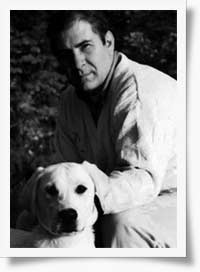
In 1972, a deranged man, named Laszlo Toth, dashed past the guards in St. Peter’s Basilica, vaulted a marble balustrade and attacked Michelangelo’s Pieta. He struck the Madonna with a hammer twelve times before he could be stopped. When he was done, over 100 fragments of the Renaissance masterpiece littered the floor of the chapel.
That happened a week before my twenty-seventh birthday. I will be 74 at the end of this month, but I still remember it vividly.
I had traveled through Europe with friends the year before. We took turns prioritizing each day’s activities. Whenever possible my choices involved visiting Michelangelo, long near the top of my panoply of heroes. We saw his David, Moses, St. Peter’s Basilica, the Sistine Chapel, and, of course, The Pieta.
“It is a miracle that a rock, which before was without form,” Giorgio Vasari wrote, “can take on such perfection that even nature sometimes struggles to create in the flesh.”
Vasari was right. It was awesome.
Michelangelo carved the Pieta from a single block of Carrara marble. Such was his genius that he said he could see the sculpture imprisoned within the marble. All he had to do was release it by chipping away the unnecessary pieces.
I have remembered Toth’s attack through the years not only because I admire Michelangelo but also because it placed the cycle of creation and destruction in a context I had never considered before and have never since been able to forget.
It was shocking to realize that one of the great masterpieces of the world – two-year’s work for a once-in-forever genius – could be destroyed in matter of moments by any mindless cretin so inclined.
Through the years that thought has stayed with me and morphed into a broader understanding of the nature of things. I have come to understand how much easier it is to break than build, to take things apart than to put things together, to divide than unite. As Toth first cemented into my consciousness, it’s easier to destroy than create.
Worse. It is not only is it easier. It is inevitable.
As the poet, W. B. Yeats, wrote, “Things fall apart; the centre cannot hold.”
Physics calls it entropy – a decline into disorder. According to the second law of thermodynamics entropy always increases with time.
The implications for our lives and the future of our country are inescapable. Progress is not inevitable. The barbarians are always at the gate. What was dearly won can easily be lost.
The Renaissance of Michelangelo built on the traditions of ancient Greece, but there were decades of darkness before and after as the Renaissance devolved into the Age of the Inquisition.
The five hundreds years since the Renaissance have not produced another Michelangelo or DaVinci, but they did produce a Washington and a Jefferson. The essential elements of Ancient Greece and the Renaissance found fertile ground in this new land, fueling the thinking of our founding fathers – the closest thing to Renaissance Men the world has seen since that time.
This cycle of rebirth and regeneration is known as Negentropy. Negentropy is the reverse entropy. It means bringing into order – organization, structure and function – the opposite of randomness or chaos.
One example of negentropy is the Solar System. Another example is life, which fundamentally is the ability to make something out of nothing.
As I consider what I can remember of my past, the world that was and the world that is, it’s hard not to believe that I have seen the best of America, a gift of our founding fathers fulfilled by the “greatest generation.”
I am profoundly grateful for the life I have been given, but I fear for the future. I can’t honestly say I believe my generation will be leaving the world a better place than we found it. Many of us have tried. Too many have not.
Too many have fallen to the temptations Ghandi identified as the seven deadly sins: Wealth without work, pleasure without conscience, knowledge without character, commerce without morality, science without humanity, worship without sacrifice, and politics without principle.
Selfishness has over-ruled selflessness. Indifference, ignorance and arrogance prevail. Authorities and institutions are broadly questioned – particularly when that suits our personal point of view or convenience – and we have produced a new breed of human beings – fact-resistant homo sapiens, locked in to the silos of their beliefs, impenetrable to reason.
The dissipation of our society is inescapable and it is likely to get worse before it gets better – if it ever does. Ultimately, and always, it is up to us. It’s our country. It’s our world. The future of our children is at stake.
As is so often the case, the answer is to respond with love. Where there is love, there is always hope, there will always be life.




